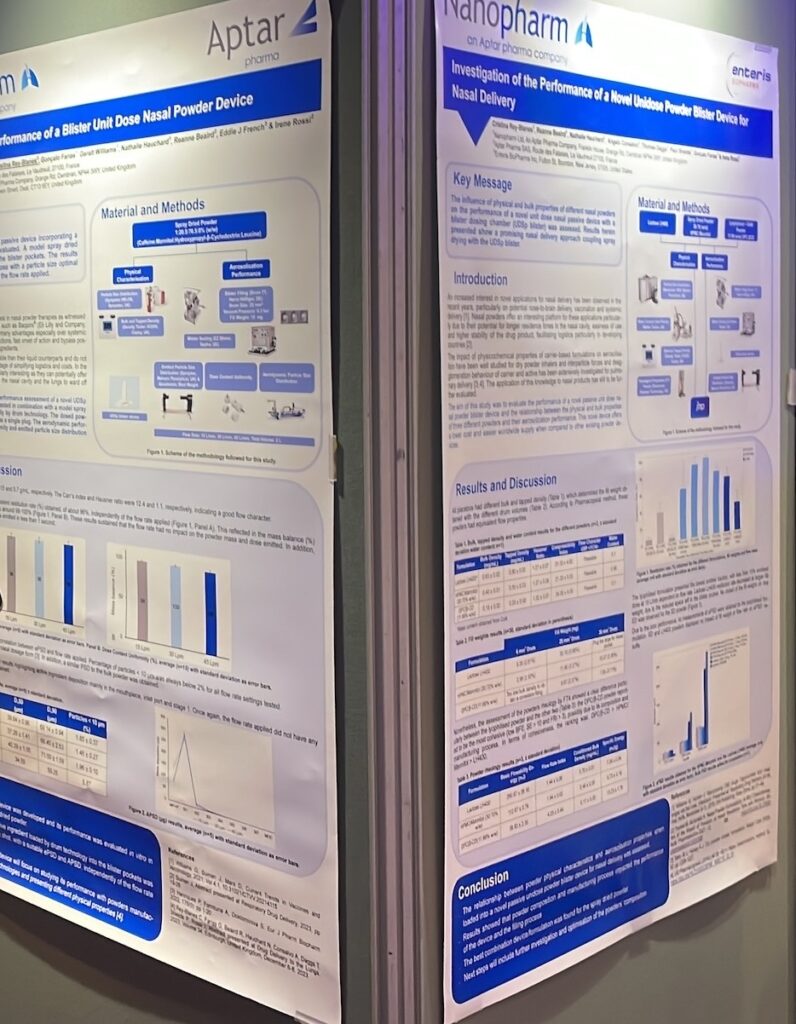
As at RDD Europe 2023, nasal powder formulations also got some attention. Alison Lansley of the University of Brighton spoke about “Mucoadhesion and cytotoxicity of powders for nasal drug delivery,” comparing the properties of hydroxypropyl methyl cellulose, pectin, carboxymethylcellulose, and colloidal microcrystalline cellulose. Aptar Pharma, which is working with TFF Pharmaceuticals on dry powder nasal vaccines, presented two posters related to its dry powder nasal device. In the exhibition, DPI maker Iconovo promoted its ICOone Nasal device.
Environmental Concerns
While many OINDP meetings in recent years, including DDL2022, devoted a good deal of time to discussion of a potential switch to lower global warming potential (LGWP) propellants in metered dose inhalers, DDL2023 addressed a transition that is already well underway, with only a few talks in the scientific sessions focused on the new propellants.
Hossain Chizari of Kindeva Drug Delivery gave a talk on “A Multi-Physics Theoretical and CFD Approach, To Predict Low-GWP pMDI Spray Characteristics, Inside USP-IP Geometry,” and YY Ong discussed research conducted in partnership with Kindeva on in-vitro dissolution rates of beclametasone dipropionate particles generated by solution-based MDIs using different propellants. Ong reported that the studies found size and morphological differences between particles from HFA134a, HFO1234ze(e), and HFA152a inhalers that may have led to small differences in dissolution rate, with HFA134a > HFO1234ze(E) > HFA152a.
As at recent OINDP conferences, LGWP manufacturers Honeywell, which makes HFO1234ze(e), and Koura (Orbia), which makes HFA-152a, were major sponsors and answered questions about their products in the exhibition. Recipharm, which recently announced a partnership with Honeywell for development of MDIs using Honeywell’s Solstice Air HFO1234ze(e), promoted its LGWP propellant services, as did Kindeva Drug Delivery, which recently announced a partnership with Koura. Device makers, including Aptar Pharma and RxPack, also promoted their expertise related to LGWP propellants.
In addition to the use of LGWP propellants in drug delivery to the lungs, DDL2023 included talks on environmental concerns related to the delivery of toxins and pathogens to the lungs. In the return of the quirky “What on Earth” talks, Lea Ann Dailey from the University of Vienna presented a talk called, “Have impinger, will travel!” in which she described a project designed to measure the presence of microplastics in the respirable fraction of sea spray.


